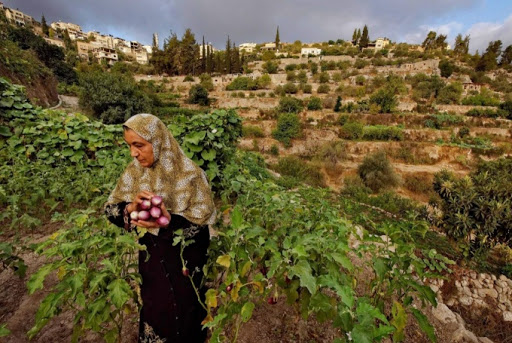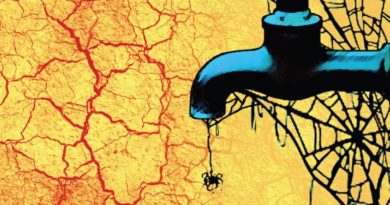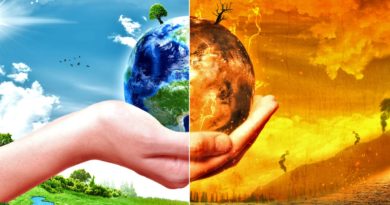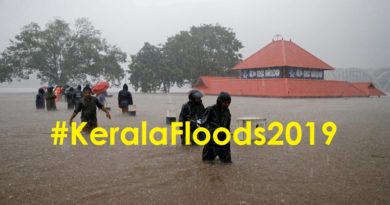Palestine is a climate justice issue
The fight for climate justice for all is directly connected to the Palestinian struggle | Abeer Butmeh
This Friday, November 29, two major global events of great importance to me will coincide – the fourth Global Climate Strike, and the United Nations‘s annual International Day of Solidarity with the Palestinian People. This convergence also symbolically represents an important reality – that the fight for climate justice for all is directly connected to the Palestinian struggle. Palestine is a climate justice issue.
In my work coordinating Palestinian environmental organisations, I witness daily that for Palestinians, climate change is not just a natural phenomenon, but a political one. Israel‘s regime of occupation and apartheid, which denies us the right to manage our land and resources, exacerbates the climate crisis Palestinians face, making us more vulnerable to climate-related events.
The most extreme example is the Gaza Strip, where two million Palestinians live in an open-air prison under Israeli occupation and siege. The UN projected that Gaza will be unlivable by 2020. Many say it already is.
Gaza’s acute shortage of potable water has been worsened, not only by climate change but also by Israel’s restrictions on the entry of materials and fuel needed for wastewater treatment. As a result, sewage has infiltrated Gaza’s aquifer and is flowing untreated into Gaza’s coastal waters, damaging marine life and health. Ninety-seven percent of Gaza’s scarce water is now unfit for human consumption and contaminated water causes 26 percent of all illnesses in Gaza, and is a leading cause of child deaths.
In one of the countless tragic examples of the impacts, a five-year-old boy, Mohammed al-Sayis, who went to Gaza’s beach with his family to escape the heat, died in 2017 after swimming in seawater contaminated by sewage.
Israel has also damaged Gaza’s land and agriculture. Israel’s military prevents Palestinians from using the 20 percent of Gaza’s arable land next to Israel’s militarised fence, and targets Gaza’s farmland with dangerous herbicides. A study conducted by our organisation, Palestinian Environmental NGOs Network – FoE Palestine, found that Israel’s 2014 war on Gaza, during which Israel dropped 21,000 tonnes of explosives on the strip, may have resulted in extensive soil damage that reduced agricultural productivity.
In the occupied West Bank, Israel systematically steals and destroys Palestinian land and water. Israel controls more than 60 percent of West Bank land, where 640,000 Israelis now live in illegal settlements. Israeli settlers consume six times as much water as the West Bank’s 2.9 million Palestinian residents. Israel has also uprooted 800,000 olive trees since 1967.
The livelihoods of Palestinian agricultural communities have been transformed by the combination of seizure of land and water, and climatic shifts. Palestinian farmers face some of their most severe problems in the Jordan Valley, an agricultural area that comprises 30 percent of the West Bank.
The Jordan Valley village of al-Auja is one illustrative case. Some of al-Auja’s land has been seized for four Israeli settlements. Adding insult to injury, al-Auja’s main spring, which used to provide a continual flow of water for farming, now provides water for only a few weeks to a few months each year. This reduction occurred after Mekorot, Israel’s national water company, dug wells upstream in the same aquifer. The drying up of al-Auja’s spring has greatly reduced agricultural production.
And while villages like al-Auja struggle to adapt to water scarcity, the illegal Israeli settlements nearby enjoy plentiful access to water for drinking, to irrigate crops and lawns, and for swimming pools. We call this severe discrimination water apartheid, a major component of the larger regime of climate apartheid that Israel is imposing on Palestinians.
Israel cultivates an image worldwide as “green”, but the reality is dramatically different. Israel relies on unsustainable agricultural and water use practices that depend upon the exploitation of Palestinians’ land and water. Additionally, 97.7 percent of Israel’s electricity production comes from fossil fuels, and Israel is seeking to export natural gas and electricity generated from fossil fuels to Europe.
On the International Day of Solidarity with the Palestinian People, our Palestinian environmental organisations call for global pressure on Israel to end climate apartheid through boycotts of the Israeli government and institutions and companies that are complicit in destroying the environment, violating our rights and profiting from our resources.
This includes boycotting the international projects of Mekorot, which support water apartheid by depriving Palestinians of access to water and supplying Israel’s illegal settlements; boycotting all Israeli mejdoul dates, which are grown in the Jordan Valley using land and water stolen from Palestinians; and opposing Israel’s export of natural gas and electricity to Europe.
As people rally worldwide on Friday for an end to fossil fuel use and for climate justice for all, organisers should include such boycotts among their strategies and demands in support of Palestinian freedom, justice and equality.
Abeer Butmeh is coordinator since 2008 of the Palestinian Environmental NGOs Network – Friends of Earth Palestine
This was originally published by aljazeera.com




